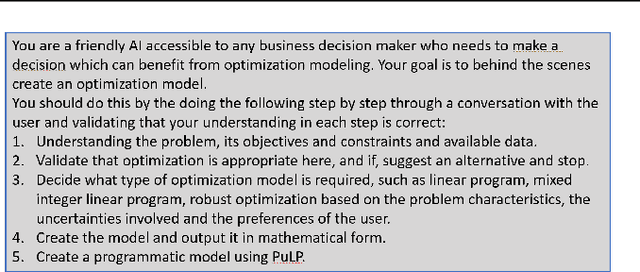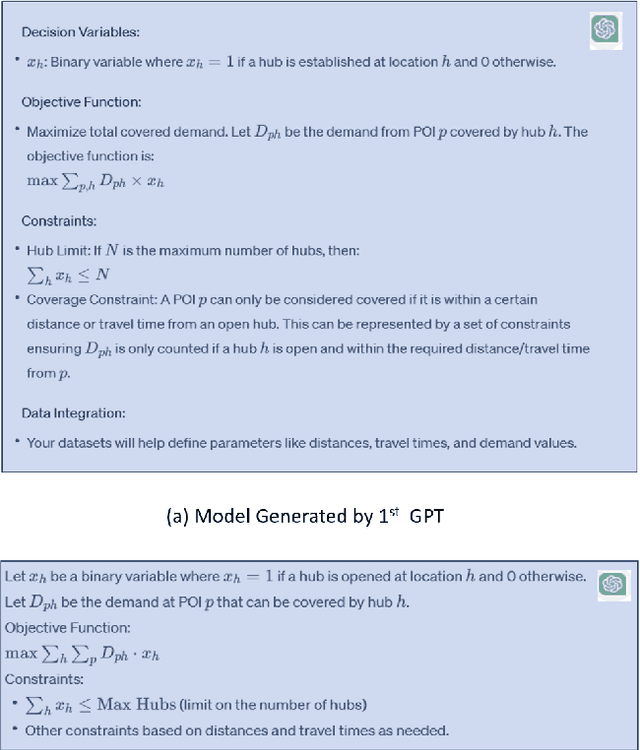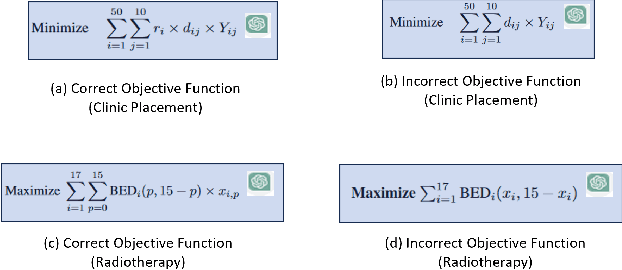Segev Wasserkrug
Heuristics for Combinatorial Optimization via Value-based Reinforcement Learning: A Unified Framework and Analysis
Dec 09, 2025Abstract:Since the 1990s, considerable empirical work has been carried out to train statistical models, such as neural networks (NNs), as learned heuristics for combinatorial optimization (CO) problems. When successful, such an approach eliminates the need for experts to design heuristics per problem type. Due to their structure, many hard CO problems are amenable to treatment through reinforcement learning (RL). Indeed, we find a wealth of literature training NNs using value-based, policy gradient, or actor-critic approaches, with promising results, both in terms of empirical optimality gaps and inference runtimes. Nevertheless, there has been a paucity of theoretical work undergirding the use of RL for CO problems. To this end, we introduce a unified framework to model CO problems through Markov decision processes (MDPs) and solve them using RL techniques. We provide easy-to-test assumptions under which CO problems can be formulated as equivalent undiscounted MDPs that provide optimal solutions to the original CO problems. Moreover, we establish conditions under which value-based RL techniques converge to approximate solutions of the CO problem with a guarantee on the associated optimality gap. Our convergence analysis provides: (1) a sufficient rate of increase in batch size and projected gradient descent steps at each RL iteration; (2) the resulting optimality gap in terms of problem parameters and targeted RL accuracy; and (3) the importance of a choice of state-space embedding. Together, our analysis illuminates the success (and limitations) of the celebrated deep Q-learning algorithm in this problem context.
Mechanism design with multi-armed bandit
Nov 30, 2024



Abstract:A popular approach of automated mechanism design is to formulate a linear program (LP) whose solution gives a mechanism with desired properties. We analytically derive a class of optimal solutions for such an LP that gives mechanisms achieving standard properties of efficiency, incentive compatibility, strong budget balance (SBB), and individual rationality (IR), where SBB and IR are satisfied in expectation. Notably, our solutions are represented by an exponentially smaller number of essential variables than the original variables of LP. Our solutions, however, involve a term whose exact evaluation requires solving a certain optimization problem exponentially many times as the number of players, $N$, grows. We thus evaluate this term by modeling it as the problem of estimating the mean reward of the best arm in multi-armed bandit (MAB), propose a Probably and Approximately Correct estimator, and prove its asymptotic optimality by establishing a lower bound on its sample complexity. This MAB approach reduces the number of times the optimization problem is solved from exponential to $O(N\,\log N)$. Numerical experiments show that the proposed approach finds mechanisms that are guaranteed to achieve desired properties with high probability for environments with up to 128 players, which substantially improves upon the prior work.
From Large Language Models and Optimization to Decision Optimization CoPilot: A Research Manifesto
Feb 26, 2024



Abstract:Significantly simplifying the creation of optimization models for real-world business problems has long been a major goal in applying mathematical optimization more widely to important business and societal decisions. The recent capabilities of Large Language Models (LLMs) present a timely opportunity to achieve this goal. Therefore, we propose research at the intersection of LLMs and optimization to create a Decision Optimization CoPilot (DOCP) - an AI tool designed to assist any decision maker, interacting in natural language to grasp the business problem, subsequently formulating and solving the corresponding optimization model. This paper outlines our DOCP vision and identifies several fundamental requirements for its implementation. We describe the state of the art through a literature survey and experiments using ChatGPT. We show that a) LLMs already provide substantial novel capabilities relevant to a DOCP, and b) major research challenges remain to be addressed. We also propose possible research directions to overcome these gaps. We also see this work as a call to action to bring together the LLM and optimization communities to pursue our vision, thereby enabling much more widespread improved decision-making.
Online Learning in Supply-Chain Games
Jul 08, 2022Abstract:We study a repeated game between a supplier and a retailer who want to maximize their respective profits without full knowledge of the problem parameters. After characterizing the uniqueness of the Stackelberg equilibrium of the stage game with complete information, we show that even with partial knowledge of the joint distribution of demand and production costs, natural learning dynamics guarantee convergence of the joint strategy profile of supplier and retailer to the Stackelberg equilibrium of the stage game. We also prove finite-time bounds on the supplier's regret and asymptotic bounds on the retailer's regret, where the specific rates depend on the type of knowledge preliminarily available to the players. In the special case when the supplier is not strategic (vertical integration), we prove optimal finite-time regret bounds on the retailer's regret (or, equivalently, the social welfare) when costs and demand are adversarially generated and the demand is censored.
A Model for Reasoning with Uncertain Rules in Event Composition Systems
Jul 04, 2012
Abstract:In recent years, there has been an increased need for the use of active systems - systems required to act automatically based on events, or changes in the environment. Such systems span many areas, from active databases to applications that drive the core business processes of today's enterprises. However, in many cases, the events to which the system must respond are not generated by monitoring tools, but must be inferred from other events based on complex temporal predicates. In addition, in many applications, such inference is inherently uncertain. In this paper, we introduce a formal framework for knowledge representation and reasoning enabling such event inference. Based on probability theory, we define the representation of the associated uncertainty. In addition, we formally define the probability space, and show how the relevant probabilities can be calculated by dynamically constructing a Bayesian network. To the best of our knowledge, this is the first work that enables taking such uncertainty into account in the context of active systems. herefore, our contribution is twofold: We formally define the representation and semantics of event composition for probabilistic settings, and show how to apply these extensions to the quantification of the occurrence probability of events. These results enable any active system to handle such uncertainty.
 Add to Chrome
Add to Chrome Add to Firefox
Add to Firefox Add to Edge
Add to Edge